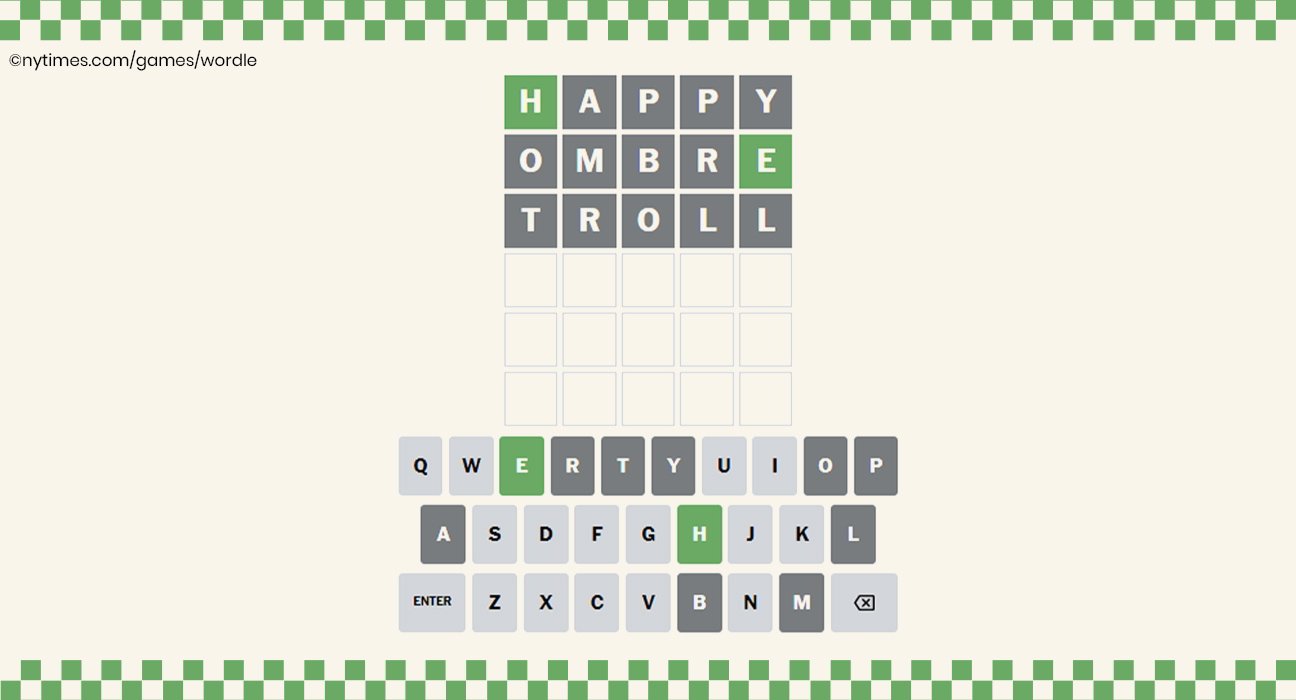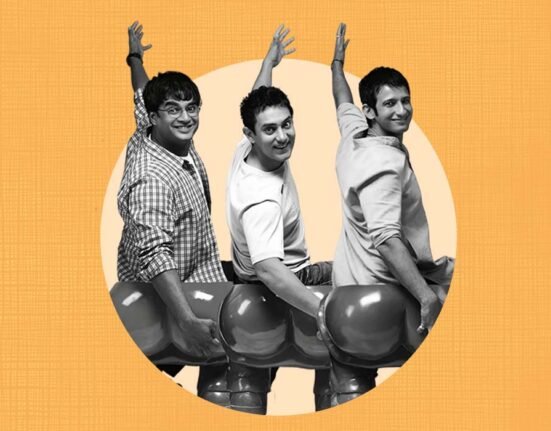Wordle is a popular web-based word game. It was developed by New York-based software engineer Josh Wardle. He first designed the game in the year 2021, as a fun personal project to play with his partner, who loved word games. Later that year he shared it with friends and family, who just like them, were seeking a pass-time during the global pandemic. Following their positive response, he officially released the game in October 2021. It eventually went on to become a hugely successful public phenomenon, catching the attention of several others, engaging their attention for its simplicity and daily challenges, proving as a harmless distraction during those testing times.
The game involves guessing simple 5-letter words, in less than 5 attempts. With new challenges provided daily and the feature to share one’s achievements with others, it fosters a competitive spirit and a sense of community among the players. Owing to its simple rules and easy accessibility, the game’s popularity has grown even more rapidly. With several influencers on social media participating in the game, sharing their scores and strategies for the game, fan pages emerged, fostering a community of Wordle enthusiasts online. As of today, June 2024, there are over 5000 posts on Instagram with the #wordle. Some of the features that make this game so popular and interesting for the users have been discussed here.
Cognition/Problem-solving abilities:
The game challenges the players to make use of their cognitive thinking and problem-solving skills to find the answers. This provides them with a challenge that is tricky yet well within their capabilities. It engages the visual, spatial and linguistic abilities of the mind, thereby enhancing these cognitive abilities over time.
Daily Challenges:
It is a new challenge for the users every day, which makes them push their boundaries to get a sense of achievement or fulfilment. But this sense of fulfilment or the dopamine rush is Scarce, i.e. it is limited; unlike other games like Candy Crush. Hence it makes the users want to come back the next day to experience the same feeling of achievement. Therefore it functions on the psychological principle of scarcity which prevents the game from becoming an addiction, like the others.
Pattern Recognition:
The game mobilises the cognitive abilities of the mind to find solutions through the recognition of repetitive patterns of the game. Hence making it a rewarding process. Therefore, developing a habit or routine, makes regular practice enjoyable.
Instant Result:
Also, the instant feedback that the game gives its users for identifying the correct letters and their positions, in the form of yellow and green tiles, makes the process even more gratifying and engaging. This leads to Dopamine release in the body, that is the ‘feel-good’ hormone, providing a sense of accomplishment or progress with each correct answer. Therefore, it targets the brain’s reward system and allows sharing of one’s results with other players, which boosts their confidence.
Linguistic Skills:
Continuous practice of the game over some time builds the linguistic or language skills of a person, making them even more well-versed with newer words and their meanings. Hence making it an entertaining as well as productive activity for younger kids to enhance their vocabulary. For Example, Ms Qiwiie, an Asian teacher, who is widely followed on social media is usually seen interacting with her students through this game. Hence, it also becomes a way to make the classroom a more interactive and fun environment for the students.
Social Interaction and Competition:
It allows the players to share their results with peers and also online fostering a sense of community, leading to encouragement and social validation. Posting their achievements and scores online can make them receive likes and engagement and this downward social comparison would boost confidence. However, in certain cases where a person fails to get certain scores or solve some of the games that their peers have already cleared, it may lead to them doubting their abilities and hampering their self-confidence. Therefore, players need to avoid getting carried away or being personally affected in case they fail.
Read More: Why are Human Beings called Social Animals?
Limited Attempts and Accessibility:
The game is easily accessible and easy because of its simple rules, however, the limited number of guesses that a person gets makes it challenging at the same time. Also since each game has limited attempts, it can be finished within a short period, thereby preventing chances of losing interest, burn-out or addiction due to unlimited access.
Therefore, taking into consideration the increasingly short attention span of people on the internet today, Wordle becomes an easy, quick and engaging way to take a break from the hectic daily life, while diverting attention towards something worthwhile and entertaining at the same time. On the other hand, it is also being increasingly used as an educational tool, in schools to inculcate problem-solving and linguistic skills among students. Therefore, these characteristics and properties of the game have made it an educational tool as well as a healthy source of recreation at the same time.
References +
- Wikipedia contributors. (2022, January 1). Wordle. Wikipedia. https://en.wikipedia.org/wiki/Wordle
- Anderson, K. (2023, August 16). From Letters to Laughter: the Educational Benefits of Kids Wordle Game. Troomi Wireless. https://troomi.com/from-letters-to-laughter-the-educational-benefits-of-kids-wordle-game/
- UX Magazine. (2022, April 29). The fascinating psychology tricks that make WORDLE so addictive. https://uxmag.com/articles/the-fascinating-psychology-tricks-that-make-wordle-so-addictive
- Ocklenburg, S., PhD. (2022, January 28). A new game is taking the world by storm. Here’s the psychology behind it. Psychology Today. https://www.psychologytoday.com/intl/blog/the-asymmetric-brain/202201/the-psychology-behind-wordle
- What our brains do when we play Wordle. (2022, January 27). Tufts Now. https://now.tufts.edu/2022/01/27/what-our-brains-do-when-we-play-wordle
- Newell, S. (2022, February 28). The Psychology of Wordle: Why Knowing It’s "Hard" Makes It Easier. ScreenRant. https://screenrant.com/wordle-hard-answer-easy-solution-solve-word-puzzle/













Leave feedback about this